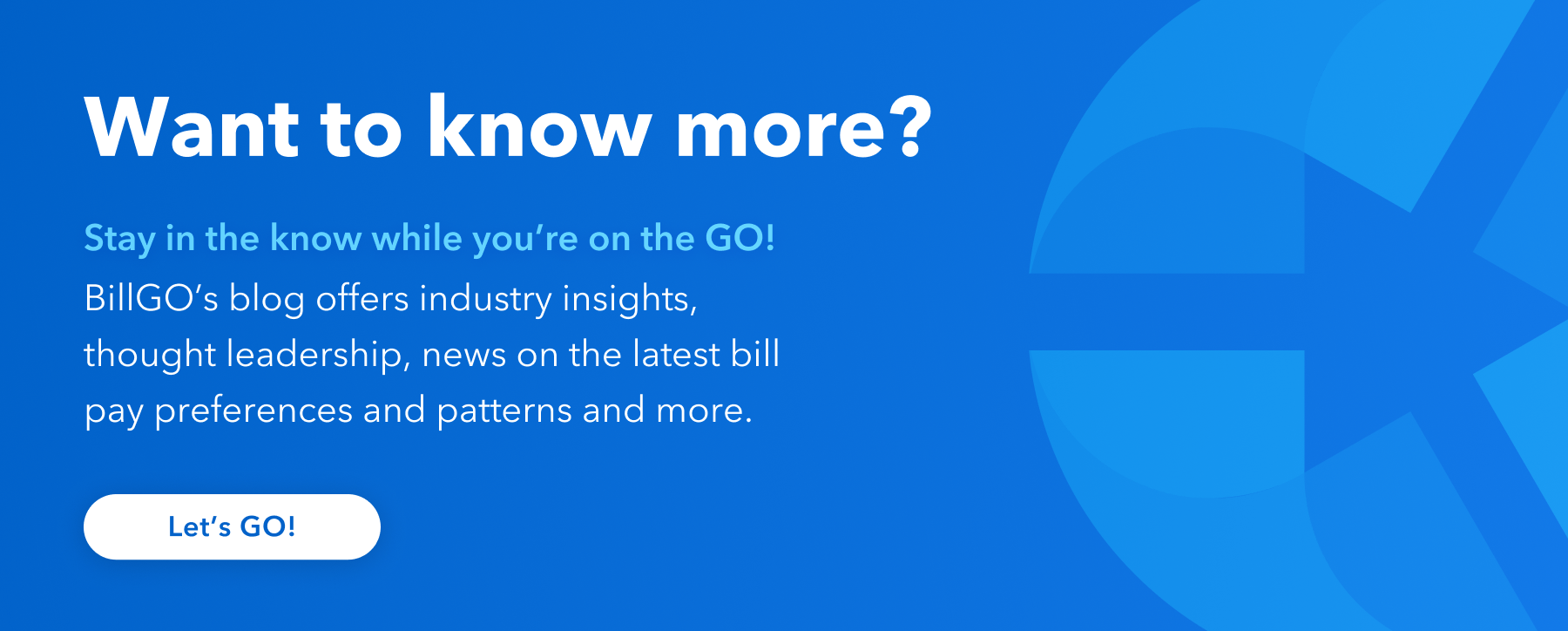With summer in the rearview mirror, we wanted to remind our readers that we devoted much of the season to interviewing some of today's top leaders and influencers in the financial services space.
The idea behind those conversations — which were presented as our Summer Spotlight series — was to step outside of BillGO and find out what others in the industry are seeing and which trends they believe will gain traction.
The subject matter we covered ran the gamut: the growth of open banking, what drives the collaboration between fintechs and financial institutions (FIs), B2B payment digitization, why the industry must focus more on the financial well-being of its customers, and more.
Given the scope of the subject matter, we wanted to once more share the series. The interviews were engaging, important and provocative and we believe financial services executives can benefit from the ideas and opinions that were shared.
Take a look at the synopsis below, read the highlights and click on the links to read the full interviews. We think you’ll be glad you did.
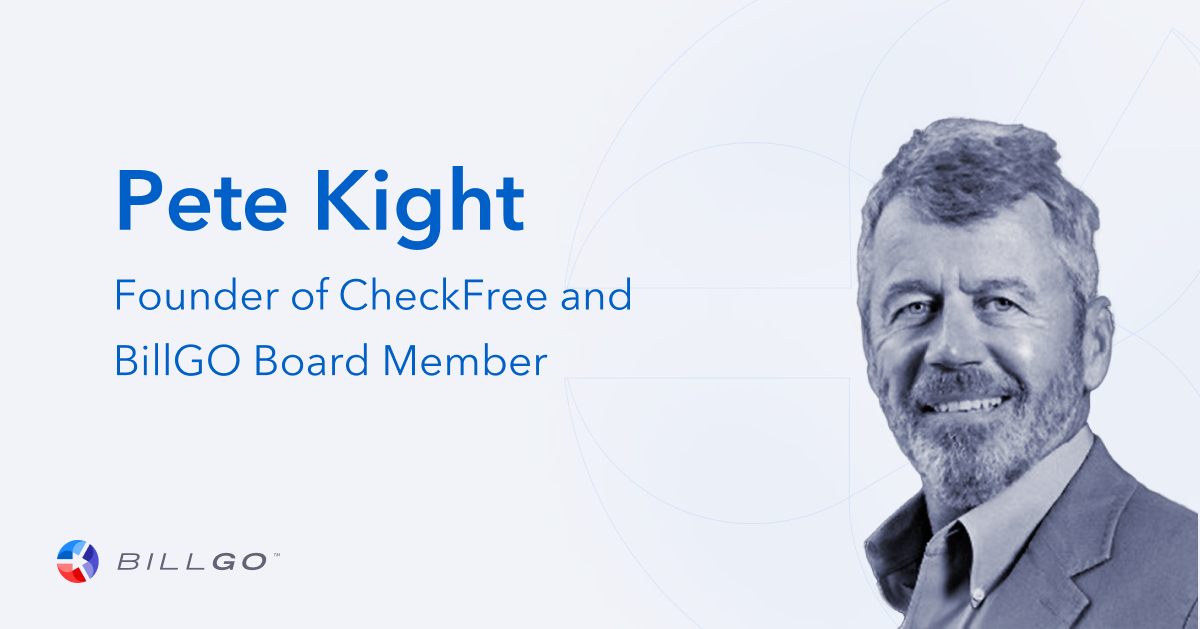
Peter Kight, Founder of CheckFree and BillGO Board Member
Not only did Kight share his story from former gym rat to payments industry disruptor, he also offered up often-acerbic opinions of today’s banking industry, the growing role of fintechs in financial services, the future of bill pay and the appeal of running a world-class vineyard.
“The moat protecting banks as the ‘trusted manager of household money’ is getting mighty thin. More and more, consumers are trusting Marcus, Charles Schwab and others to manage their money. FIs have a good reason to speed things up now. History is rife with the skeletons of businesses that thought they were protected.” Read the full interview with Pete Kight here.
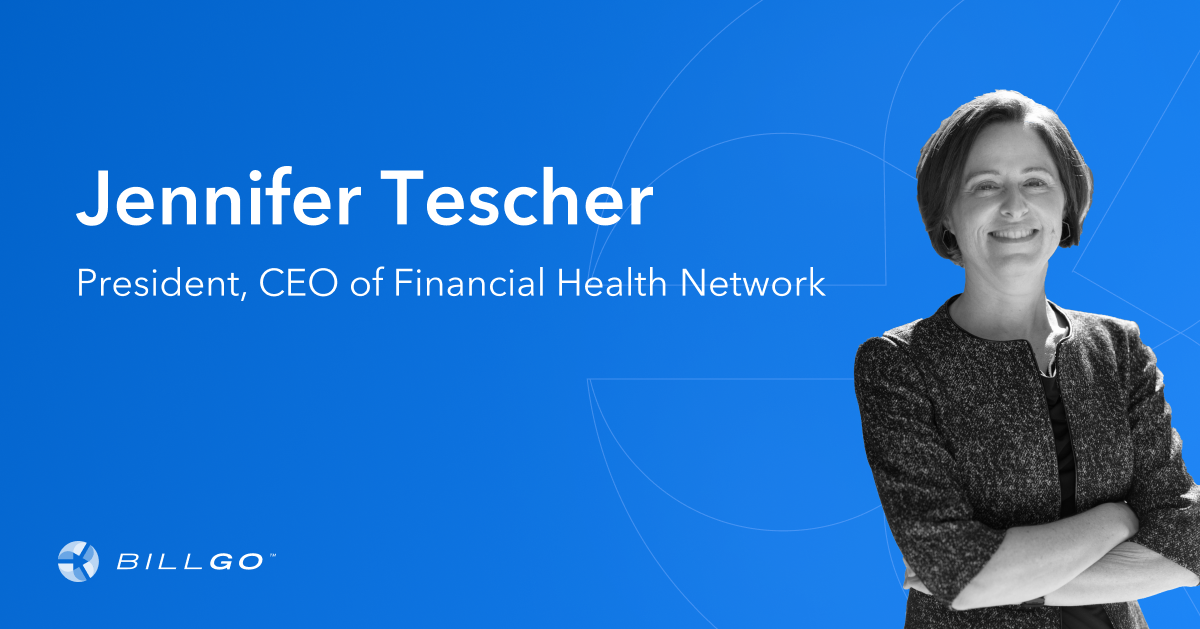
Jennifer Tescher, President and CEO of Financial Health Network
Tescher made a compelling case for why and how fintechs can promote financial well-being for all, the deeply embedded barriers blocking financial health, the shocking amount of money spent just to cover everyday financial services and who is in the hot seat to create change.
“Banks and payments organizations can support the financial health of their customers and communities by putting the customer at the center and by treating customer financial health as the desired outcome.” Continue reading about the importance of focusing on financial health here.
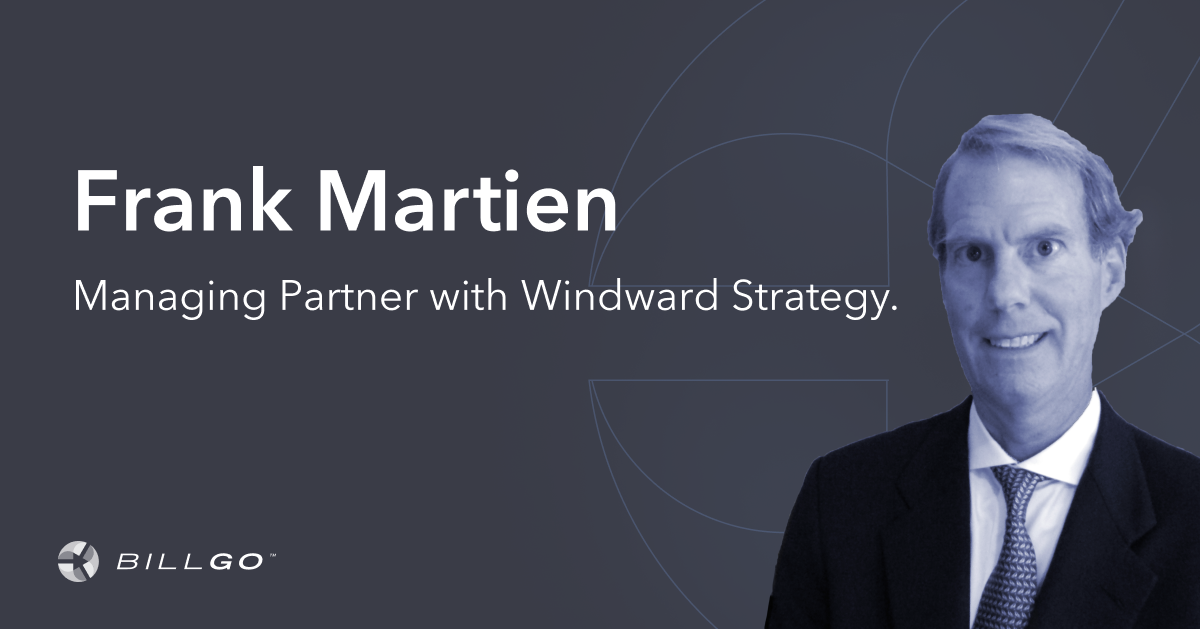
Frank Martien, Managing Partner with Windward Strategy
Martien spoke to the disparities that exist in today’s transactions and payment vehicles, where small to midsize billers fit into the equation and why the U.S. lags in B2B payment digitization, and what we can learn from international markets.
“I would generally say banks initially viewed fintechs as competitive threats; however, opinions have evolved substantially into a view of frenemies at worst and partners at best. A major driver for this is the many fintechs who have launched via a direct to corporate client model and then pivoted heavily towards a bank reseller model.” Find more of Frank’s insights here.

Ron Shevlin, Senior Contributor at Forbes and Director of Research, Cornerstone Advisors
Shevlin discussed the explosion of digital banking following COVID-19, behavioral trends of the new world customer, buy now, pay later (BNPL) and why FIs need to flip their business model on its head to compete.
“Financial health will become a new competitive dimension of financial services. FIs will compete over who can actually help consumers improve their financial health. FIs have to flip the business model on its head: instead of making money by encouraging consumers to do things that may not be in their best interest, FIs should provide tools to help consumers better manage their financial lives – and charge for those tools.” Read more from Ron here.
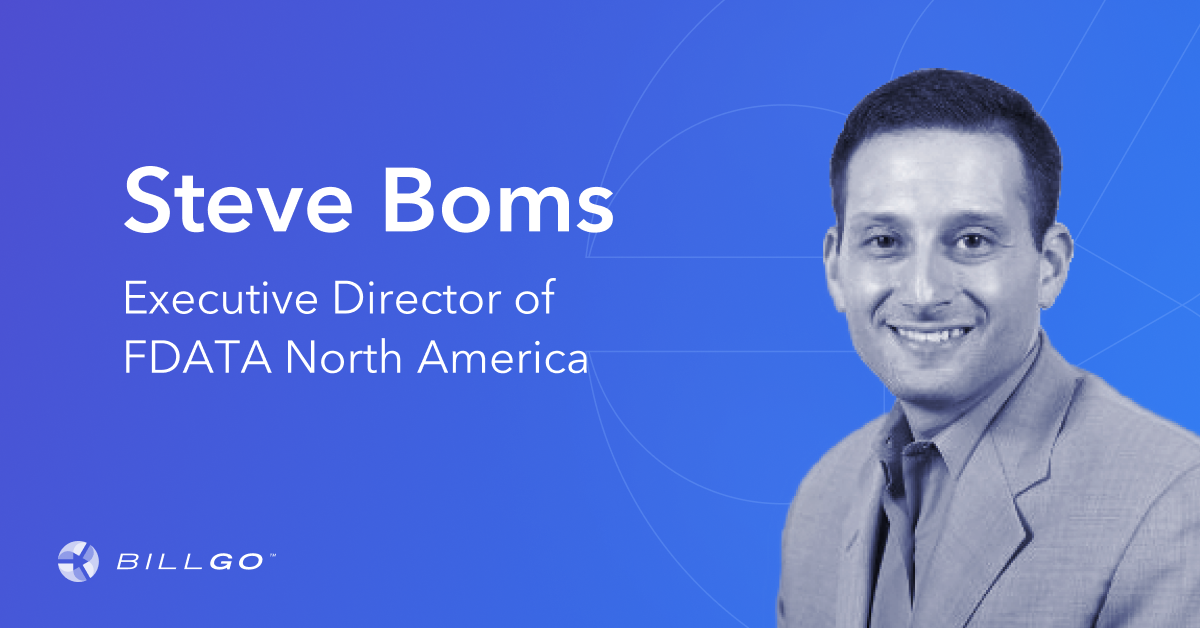
Steven Boms, Executive Director of FDATA North America
Boms shared his views on why the open banking movement is gaining traction in the U.S., how both consumers and FIs can benefit from the movement and why withholding financial data may actually harm consumers.
“Right now, [consumer] data is being used to power simple fintech tools consumers use to manage their finances. But there are also hundreds of use cases in development that will significantly expand the financial tools consumers can use to bring more individuals into the financial mainstream and improve their lives. Without open banking, consumers have no choice. FIs get to determine which products and services their customers can and can’t use...No FI should be allowed to restrict third-party provider access to data if a consumer grants that access.” Read more from Steve on consumer choice and financial opportunity here.
Want to know more?
Stay in the know while you’re on the GO! Check in often for more thought leadership, the latest on modern bill pay and how you can deliver a better experience for your customers with On the GO, BillGO‘s Bill Pay blog.
